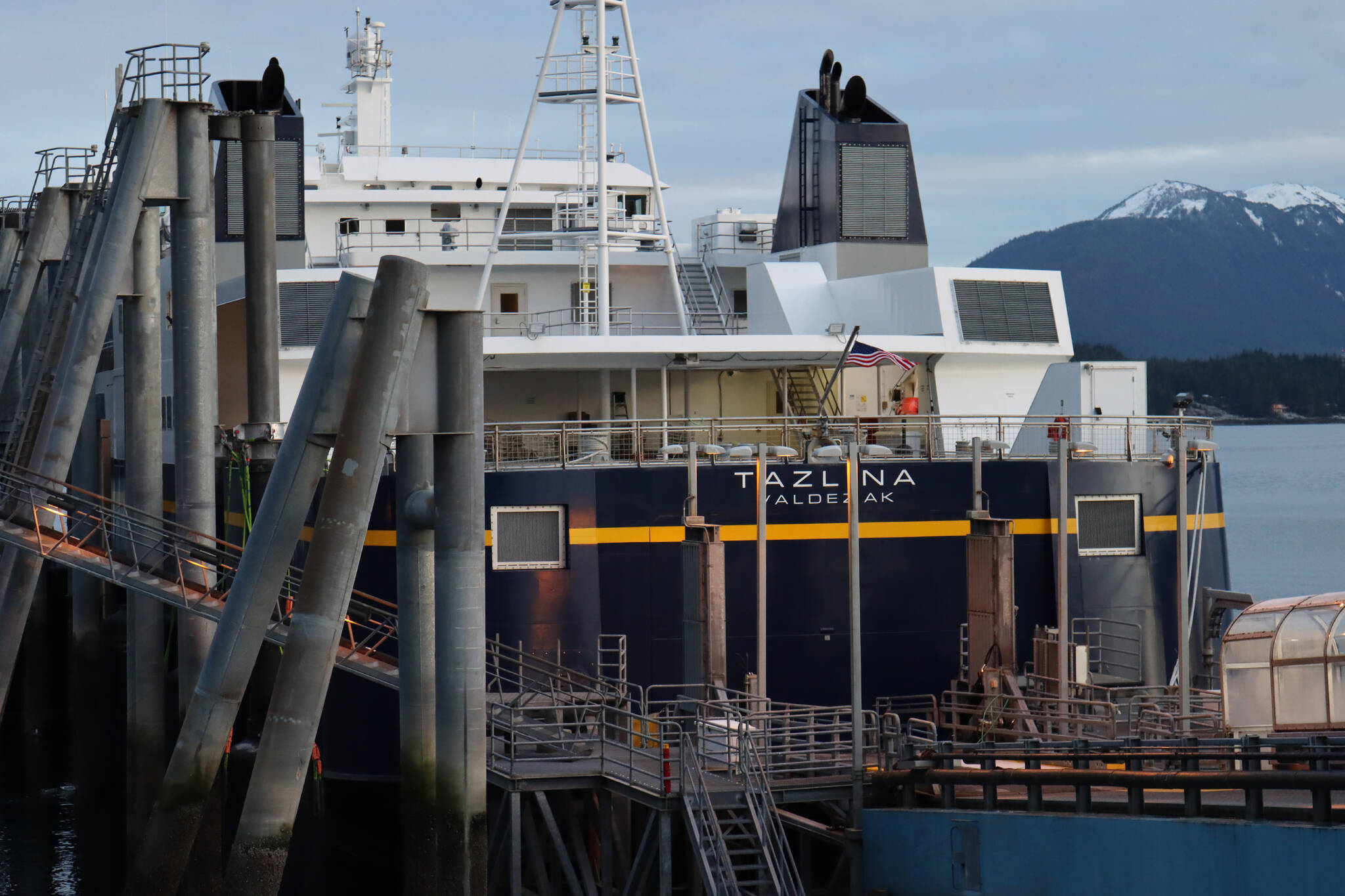A new Alaska Marine Highway Operating Board meant to stabilize the ferry system is starting to take shape as state leaders announce their appointees.
Governance of the state ferry system has been a consistent issue, and in 2020, a working group was created to make several recommendations on reforming the ferry system. In May, the Legislature passed a bill creating the advisory board.
On Monday, House Speaker Louise Stutes, R-Kodiak, — the bill’s sponsor — announced her appointments to the board; Shirley Marquardt and Wanetta Ayers. Stutes said in a statement Monday the board will give the state the opportunity to move away from a “reactive decision-making process” toward long-term planning.
Marquardt was mayor of Unalaska/Dutch Harbor, a release from the Alaska House Coalition said, and has been in the marine transportation and seafood industries for forty years. Ayers, who was on the 2020 working group,is executive director of Commonwealth North, a policy research center in Anchorage.
Gov. Mike Dunleavy announced his own appointments on Nov. 5; former Kodiak lawmaker Alan Austerman; Old Harbor village corporation executive Cynthia Berns and retired Alaska State Trooper Norm Carson of Pelican.
Austerman was a Kodiak police officer, a business owner, an Alaska state representative and senator from 1995-2014.
Senate President Peter Micciche, R-Soldotna, has yet to announce his appointments.
The announcements come as the state is expected to receive millions of dollars in additional infrastructure funding from the $1.2 trillion infrastructure bill signed Monday by President Joe Biden. will bring millions of dollars to the state for transportation, and Alaska’s congressional representatives have said that money will go toward stabilizing the state’s beleaguered Alaska Marine Highway System. Rep. Don Young was present at the bill’s signing Monday, his office announced.
But even with funding in hand, there needs to be better governance and long-term planning for the ferries, said Clay Koplin, mayor of Cordova, a city that went without ferry service for over a year in between 2019-2020. After enacting deep cuts to the ferry system, Dunleavy has softened his approach to the system and Koplin said the governor recently took action to bring more service to Cordova.
This winter Cordova has full ferry service, Koplin said, but raised concern about the system’s larger issues. The problem of short-term planning is one of the systems biggest problems, Koplin said, but the state has to ability to change that.
[‘It is a win for Alaska’ Murkowski touts bipartisan infrastructure bill]
Koplin said he hoped the monies from the infrastructure bill would be used to create a more sustainable ferry system. The bill does allow for federal highway funding to be used on the ferry system.
“Our system is so underperforming,” Koplin said. “We have a golden opportunity to leap from dysfunction to leadership.”
Koplin said he hoped to see infrastructure bill money used to build electric ferries designed for Alaska’s waters.
While Cordova has a full winter schedule, some communities in Southeast Alaska will go without ferry visits for more than two months this winter. According to the AMHS schedule, the last ferry to visit Angoon in 2021 will be on Christmas Day, and the next ship won’t arrive until March 2022.
Other communities, such as Kake and Pelican, will get one ferry visit a month in January and February 2022, according to the schedule.
Lack of ferry service can make it difficult for people in small communities to travel to larger hub communities like Juneau where products are cheaper. Shane Thompson, owner of Angoon Trading Post, that community’s only store, said when the ferries aren’t running he has to bring in supplies by barge or landing craft.
“That’s definitely not my favorite way to do things,” Thompson told the Empire Monday in a phone interview. “If they see their way to get the Tazlina on the water, I think it would be more efficient for them and for the affected communities.”
According to the Department of Transportation and Public Facilities, only four of the AMHS’ 10 vessels are currently running. Some are awaiting repairs but others —including the Tazlina — have completed their overhaul work but are not currently in service. The Tazlina, accoridng to the state transportation department, is pier side at the Auke Bay ferry terminal but currently in layup status.
Speaking to reporters last week, Sen. Lisa Murkowski, R-Alaska, said there are funds in the infrastructure bill specifically for ferries and transportation, and Rep. Don Young, R-Alaska, in a statement also lauded the bills potential benefits to AMHS. But that funding will first go the Alaska State Legislature who will then decide how and where that money is spent.
Both Thompson and Koplin said they hoped to see governance of the system move away from political cycles.
“It changes from (administration to administration),” Thompson said. “This current administration, they just want it shut down, they want it to go away.”
• Contact reporter Peter Segall at psegall@juneauempire.com. Follow him on Twitter at @SegallJnuEmpire.

